Music star Steve Strange's family bid to save online photos
- Published
Steve Strange's family want access to photos on his phone and online platforms
When 1980s pop idol Steve Strange died suddenly, the images and memories on his phone and computer were lost.
Unlike physical photo albums, which can be passed on in a will, some treasured keepsakes are now stored in a person's private digital cloud.
Tanya Harrington, the sister of the Fade To Grey singer receives royalties from Strange's back catalogue, but she also wants those sentimental, personal pictures that meant so much to her older brother.
She is backing a bill for a person's digital legacy to be passed on to family after they die.
The New Romantic pioneer - real name Stephen Harrington - had an extensive social media presence but Tanya fears a wealth of photos and content is "lost" or has "disappeared" in his digital cloud.
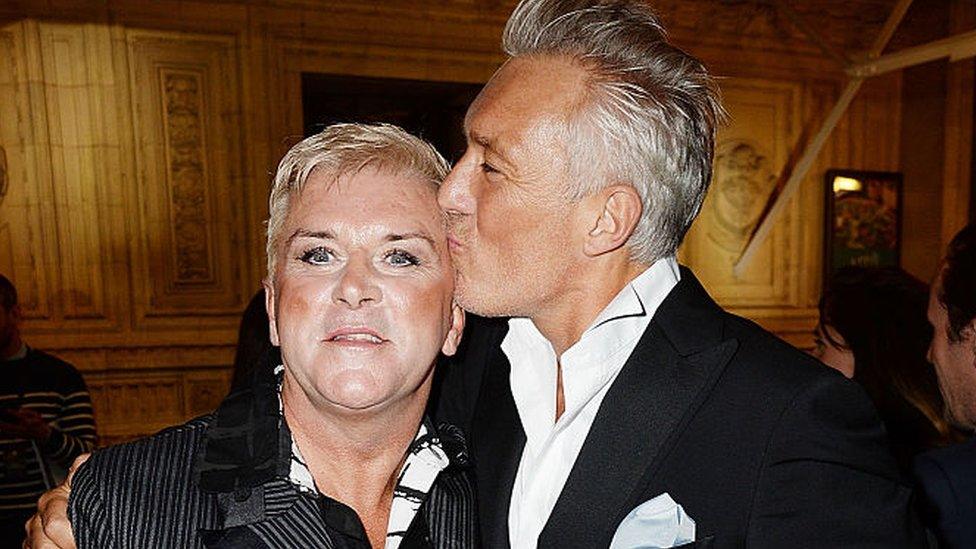
Former Eastenders actor and Spandau Ballet star Martin Kemp was "dear friends" with Steve Strange
"Steve never had anything in place because he died suddenly," said Tanya.
"He never arranged anything with me and mum because he didn't have the chance to.
"I see pictures of Steve all over social media and the internet all of the time and I wonder what pictures he had that have been lost or disappeared.
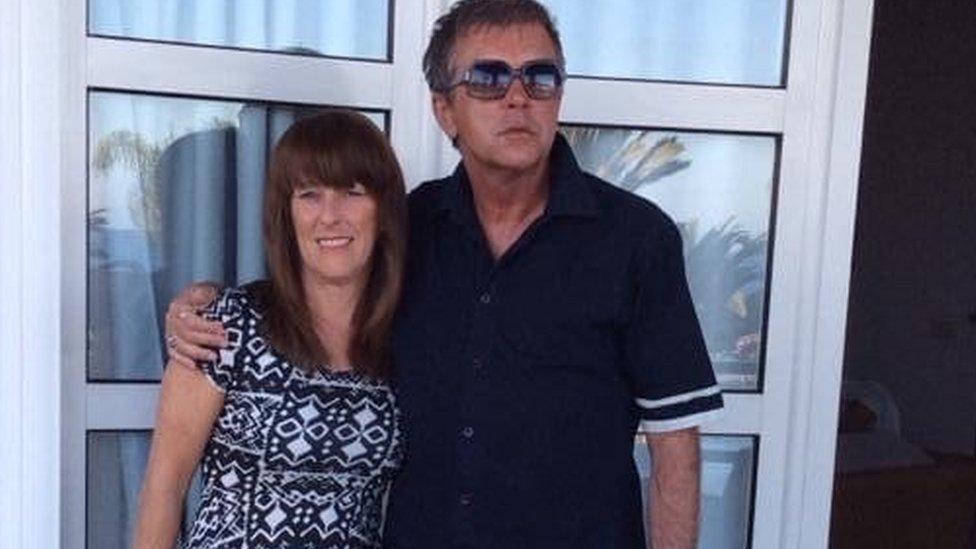
Steve Strange used to holiday every year with sister Tanya and her two sons
"All I've got is my own pictures. That's a difficult part of the grieving process. I don't know any of Steve's online passwords."
Who is Steve Strange?
Spandau Ballet, Duran Duran and Boy George's Culture Club were the flagbearers of the New Romantic movement of the late 1970s - but Strange was "custodian" of that pop culture phenomenon.
Most of those big bands started at the popular London clubs Strange ran - like Billy's, Blitz and the Camden Palace - and he was seen as New Romantic's "head boy".
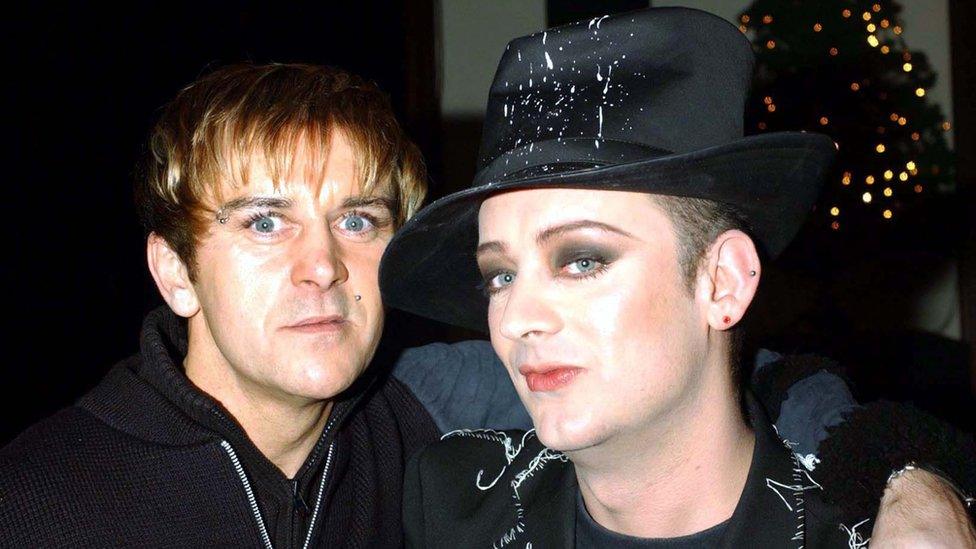
Boy George and Martin Kemp were pallbearers at Steve Strange's funeral in south Wales
His new wave band Visage were not the most popular or successful band of the movement - but their 1980 hit Fade to Grey is one of the most famous from that era.
Strange died aged 55 of a heart attack while on holiday in the Egyptian resort of Sharm El-Sheikh in 2015, with tributes from Boy George, Duran Duran frontman Simon Le Bon and Spandau Ballet brothers Gary and Martin Kemp.
Allow YouTube content?
This article contains content provided by Google YouTube. We ask for your permission before anything is loaded, as they may be using cookies and other technologies. You may want to read Google’s cookie policy, external and privacy policy, external before accepting. To view this content choose ‘accept and continue’.

What are digital assets?
Digital assets are things like our photos, videos, smart contracts, online shopping accounts, bitcoins and cryptocurrencies - and for many of us, our online world is valuable.
But what happens to such assets if someone dies suddenly? Tanya is not alone in trying to understand the world of digital assets as lawmakers and tech companies are considering with what to do with digital accounts when someone dies.
What changes are being proposed?
Tanya is backing one MP's campaign to simplify the "crypto-labyrinth" for grieving families and change the law to ensure executors have automatic right to access the digital life of their dead loved one.
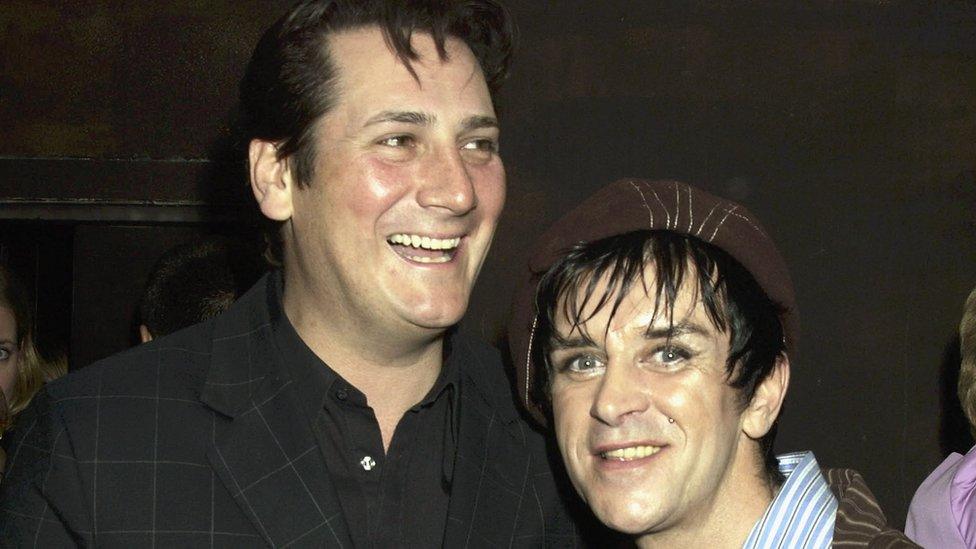
Spandau Ballet lead singer Tony Hadley was a longstanding friend of Steve Strange
The second reading of Ian Paisley's Digital Devices (Access for Next of Kin) Bill, external will be read in UK Parliament on Friday and it calls to "grant immediate access to the next of kin without them having to take costly or uncertain legal action against digital platforms".
Mr Paisley argues "there is a need for government to bring our laws into the digital century and ensure that next of kin are not blocked by tech companies from having access to their loved one's material".
"You're subject to rules that tech companies lay down and every one, they've got a different rule for how they deal with the deceased," said the MP for North Antrim in Northern Ireland.
"There's something like £25bn of assets held on people's digital devices. That can be something as simple as Air Miles.
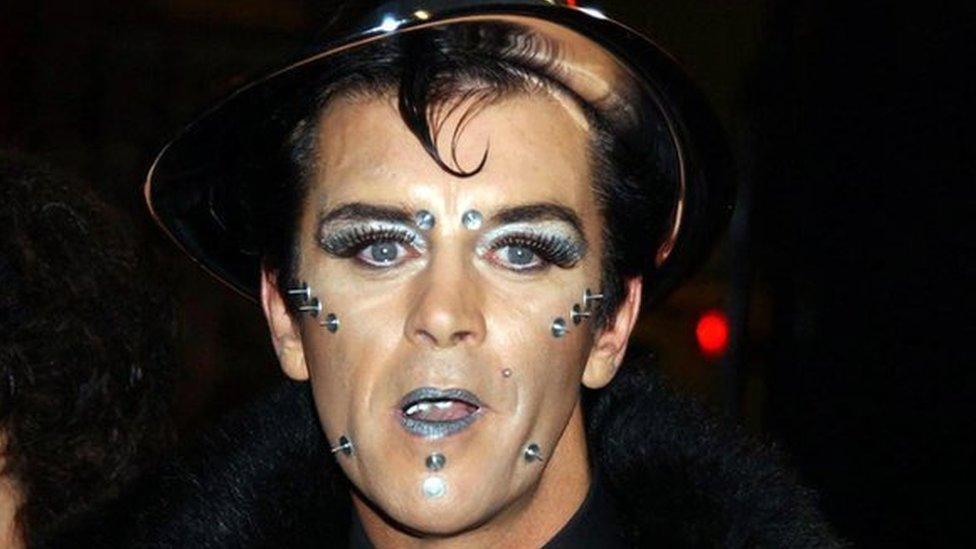
Steve Strange's look was an iconic image of the New Romantic music movement
"There are all sorts of things which are sitting on the cloud that are valuable and should be part of a person's estate, and the next of kin should have immediate access to it."
What do the tech companies say?
Meta, the company that owns Facebook, WhatsApp and Instagram, said it was "in discussion with the government and other stakeholders" in an effort "to make these situations less difficult for those involved".
Meta said its policy is if it does not "know what the deceased person would have wanted, we try to leave the account exactly as that person left it" and offer "memorialization, external", where an account remains but is essentially shut down.
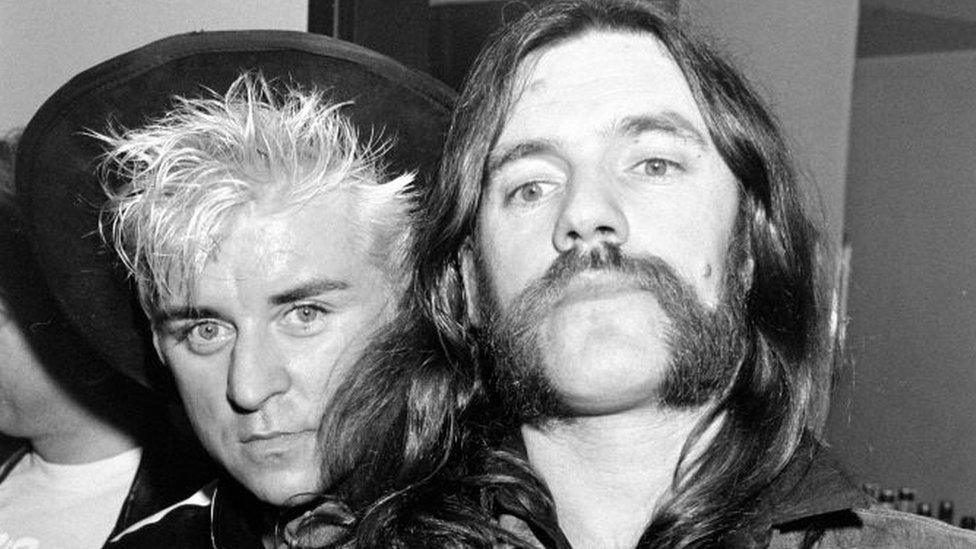
Tanya said she did not know how brother knew iconic Motorhead singer Lemmy
The tech giant added that immediate family members can request that a person's account be removed from Instagram while on Facebook, said "a legacy contact can be chosen to look after a person's main profile if it's memorialized".
Apple also has a digital legacy tool, external that allows people to give up to five contacts keys so they can access data on a device if the account holder dies suddenly.
'We're in the dark - it's not fair'
Strange's family is backing digital asset legacy reform as Tanya says families feel "in the dark" and "don't know where to start" when recovering content from their loved one's phone and computer.
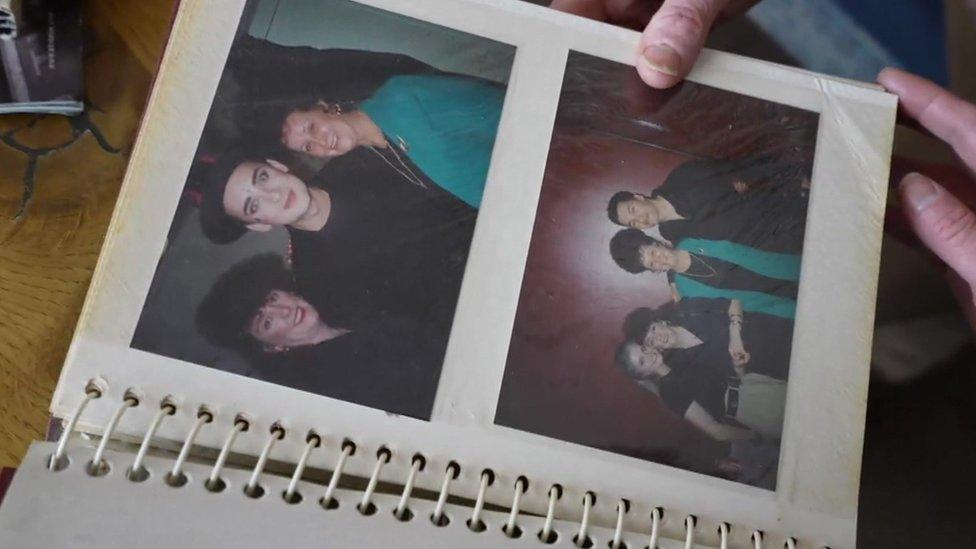
The only pictures Steve Strange's family have are those in Tanya's photo album
"I don't think it's fair so anything that can be done to help grieving family would help," said Tanya, who grew up with Steve in Newbridge, near Newport.
She's also angry that her brother's iconic image is used for branding and merchandise - an asset that Tanya says is being monetised without their permission.
"Why should people be making money out of my brother when he is not here," she said.
"It does make me angry. They didn't have anything to do with him.
"Stephen loved his two nephews, my two boys, and would've wanted them to have any assets from his legacy."
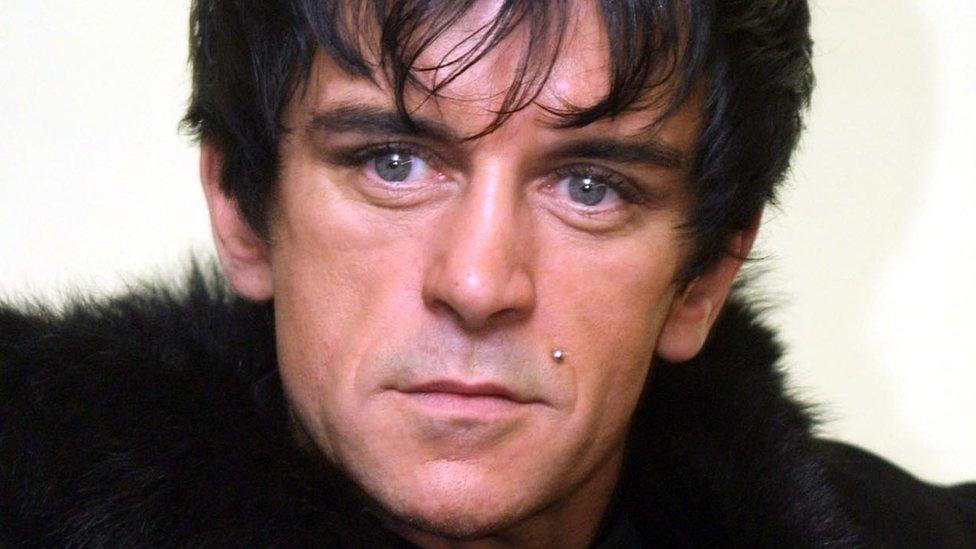
Steve Strange got into music after seeing the Sex Pistols in concert at the Castle Cinema in Caerphilly in 1976.
'Status quo causing distress for grieving families'
An organisation of lawyers, accountants and trustees who specialise in wills and estates has urged governments to address the matter urgently.
"It seems that the status quo is currently lacking and causing quite serious distress for grieving families," said Step solicitor Emily Deane.

Steve's younger sister Tanya is backing calls to reform digital and online access for the next of kin
The Law Commission has said "reforming the law to provide legal certainty would lay a strong foundation for the development and adoption of digital assets" and a consultation paper is expected later this year.
But the shadow digital minister has privacy concerns about unilaterally granting access rights to the next of kin.
"I know from my own experience, from when I was younger, there are certainly pictures or maybe conversations I've had with some people on social media that I wouldn't necessarily want being made available to my next of kin," said Alex Davies-Jones, Pontypridd's Labour MP.

Steve Strange appeared on lots of TV shows like the BBC's Never Mind The Buzzcocks
"This is a fine balance between allowing people to have access to digital assets when somebody passes away, and also maintaining the privacy of the deceased.
"So, everybody needs to have a conversation and consider what do you want your next of kin to have access to? It's for the individual to choose."
The UK government is not backing Mr Paisley's bill and said it "expects tech companies to have clear policies on the ability of relatives to access the personal data of loved ones who have passed away".

CURL UP WITH A GOOD BOOK: Aberystwyth book club members review their latest read
THE GIFT: A celebration of John Cale

Related topics
- Published13 February 2015
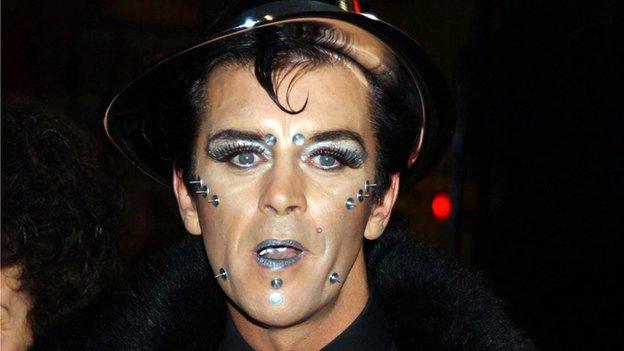
- Published13 February 2015
- Published13 February 2015

- Published13 February 2015

- Published3 December 2014

- Published6 April 2015
